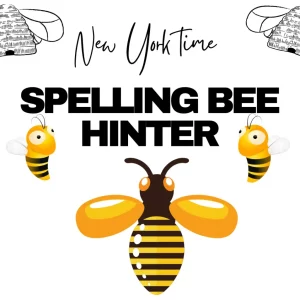Introduction
Spelling bees stand as a testament to linguistic prowess, demanding not just rote memorization but a deep understanding of language patterns. Behind the scenes, competitors employ various techniques, from mnemonic devices to dissecting etymology, to navigate the intricate labyrinth of words. Let’s delve into the multifaceted strategies that propel champions to spellbinding success in these competitions.
Understanding Language Patterns
At the heart of spelling bees lies an appreciation for language structures. Competitors unravel words by recognizing patterns, suffixes, prefixes, and roots. By comprehending these components, spellers can decode complex words, breaking them down into manageable segments. For instance, understanding Latin and Greek roots often unveils the secrets behind many challenging terms, aiding in their accurate spelling.
Mnemonic Devices and Visualization
Memory techniques play a pivotal role in retaining extensive word lists. Mnemonic devices, such as acronyms, rhymes, or visual associations, provide mental hooks to latch onto when recalling words. For example, creating a vivid mental image or story around a word can significantly aid retention. Associating a word’s spelling with its meaning or sound can serve as an effective mnemonic tool.

Word Association and Contextual Learning
Contextual learning involves connecting words with their contexts, such as sentences or stories. Understanding a word’s usage in various contexts fosters a deeper grasp of its spelling. Competitors often immerse themselves in literature, exposing themselves to diverse word applications, thus strengthening their spelling abilities through real-life examples.
Spelling Etymology and Language Origins
Exploring the origins of words unveils consistent spelling patterns. Languages like French, Latin, and Greek have influenced English significantly, and understanding their rules can aid in spelling words correctly. For instance, recognizing the silent ‘e’ rule in many French-origin words or identifying common prefixes and suffixes can be invaluable in spelling accuracy.
Comprehensive Word Study and Practice
Dedicated practice sessions involve mastering word lists, understanding their pronunciations, and drilling their spellings. This process includes repeated exposure to words across various difficulty levels, gradually expanding the speller’s repertoire. Additionally, mock competitions simulate the high-pressure environment, honing a competitor’s ability to spell accurately under stress.
Visualization and Pronunciation Techniques
Visualizing the spelling of words while mentally ‘writing’ them can reinforce memory retention. Furthermore, mastering phonetics aids in spelling words as they sound, especially when encountering unfamiliar terms. Phonetic breakdowns help competitors map the sounds to corresponding letters, enabling accurate spellings even for words they haven’t encountered before.
Time Management and Strategy
In a timed competition, efficient use of time is crucial. Competitors often strategize by spelling longer words first or focusing on familiar roots to decipher complex terms swiftly. Additionally, maintaining composure and staying focused amidst the pressure ensures a methodical approach to each word, minimizing errors.

Coping with Pressure and Confidence Building
Building confidence is as vital as mastering word lists. Techniques like mindfulness, deep breathing, and positive self-talk help spellers stay composed during high-stakes moments. Confidence not only aids in recalling spellings accurately but also allows competitors to tackle unforeseen challenges with resilience.
Conclusion
Spelling bees demand a multifaceted skill set that extends beyond memorization. Success hinges on understanding language structures, employing mnemonic devices, and comprehending word origins. Effective strategies encompass a holistic approach, merging linguistic insight with memory techniques and psychological readiness. By embracing these techniques, aspiring spellers can embark on a journey toward mastering the art of spelling, unlocking the doors to linguistic excellence.




